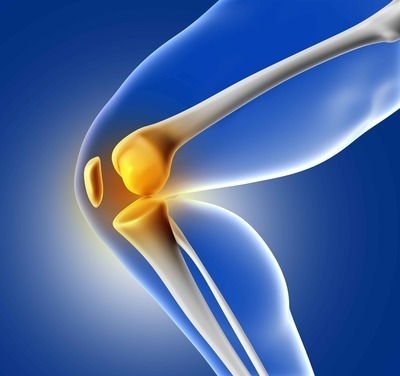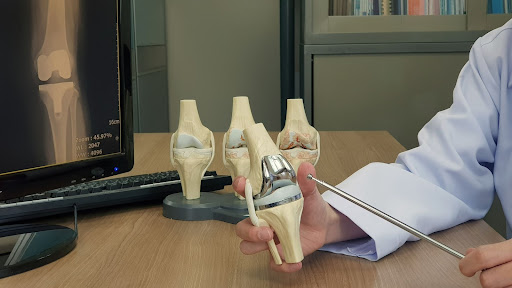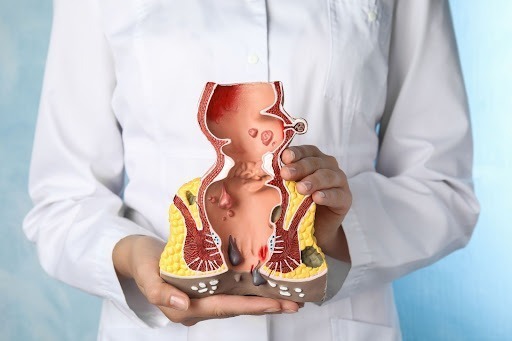Hernia
What to Eat After Hernia Surgery?

by admin
18th August 2023
7 minutes read
Hernia is a condition that occurs due to abnormal bulging or protrusion of any organ or tissue through a weakened muscle wall. These lumps are usually small in size with no significant symptom and may go unnoticed most of the time. Hernias occur mainly due to an increased pressure caused due to excess strain exerted by certain vigorous and strenuous activities and exercises, like chronic (long-lasting) cough and constipation, and muscle injury or damage. When hernias enlarge in size they may present with certain characteristic symptoms depending on the area being affected, like the presence of an obvious bulge in the affected area, abdominal and pelvic pain, fever, nausea, vomiting, heartburn, acid reflux, chest pain, and shortness of breath. These usually do not require any treatment initially but as they enlarge in size they may lead to certain life-threatening complications like obstruction (a part of your hernia gets trapped or blocked within the surrounding tissue) and strangulation (a condition when the trapped part of your hernia is deprived of the blood supply). This requires surgical intervention through open or laparoscopic surgery.
Recovery usually takes around 3 to 6 weeks, depending on the type of surgical intervention and the severity of the condition. It is a crucial period which requires you to have a good immune system for faster healing and minimal post-op complications. This can be determined by the diet you follow since a healthy diet provides your body with the necessary energy and acts as a fuel to heal.
Scroll down to know more about the dietary changes that are required post hernia surgery, to stay fit!
Why Diet is Important After Hernia Surgery?
Eating a healthy and balanced diet with proper hydration after hernia surgery is a very important factor to your road to a full recovery. This encourages your body to flush out the toxins and aids in faster healing. You need to ensure your body gets the required vitamins and minerals which is possible through a proper healthy diet, or through supplements, if a balanced diet is not possible. The importance of eating a healthy, and balanced diet cannot be overlooked since it provides your body with the necessary nutrients that boosts your immune system to fight infections and prevent post-op complications.
What to Eat After Hernia Surgery?
Following a balanced diet is important post surgery especially to avoid constipation which may put unnecessary strain during the bowel movements. During the surgery a part of your stomach is loosely wrapped around your esophagus (food pipe) which may cause some swelling and takes several weeks to settle down. Hence it is important you keep a check on your diet and eat foods that are easily digested for the initial few weeks post surgery. The main aim is to prevent constipation, or excess cough or sneezing, that may lead to unnecessary straining of muscles around the operated site.
-
Immediately after surgery
-
-
- You may take some sips of water a few hours after the surgery once the effect of anesthesia wears off.
- You need to take small sips and avoid big gulps.
-
-
Week 1 to 3
-
-
- Drink a lot of clear fluids in the form of water, juices, tea, and vegetable soups.
- Consume a sloppy diet that is soft and moist and can be easily broken down and does not require a lot of chewing, that can easily be digested. This includes pureed food, and smooth soups with no lumps.
- Take small meals for 4 to 6 times a day instead of your 3 regular meals.
-
-
Week 4 to 5
-
-
- You can slowly begin semi solid food like cooked pasta, minced meat, soft and well cooked rice.
- Drink plenty of fluids like water and juices, however avoid citrus fruit juices and caffeinated drinks and beverages.
- Take small meals around 4 to 5 times a day and initially reduce it to 3 meals per day.
-
-
Week 6
-
- You can resume your normal diet if you have progressed through the soft diet without any difficulty.
- However, if you still have difficulty with a soft diet due to indigestion or constipation, avoid a normal diet until your next follow-up appointment.
Also Read: workout after hernia surgery
Food to Eat After Hernia Surgery
The main purpose of dietary changes after a hernia surgery is to have smooth bowel movements to avoid excess strain that may lead to post-op complications and recurrence. Include the following foods in your diet:
-
Fiber-rich foods
-
-
- These foods improve your digestion and prevent constipation.
- Include fruits like bananas, pears, apples and melons that are a great source of nutrients.
- Include vegetables like carrots, sweet potatoes, and cucumber.
- Green leafy vegetables like spinach, green peas, and fenugreek (methi) are also packed with vitamins and minerals.
-
-
Lean meat
-
-
- Lean meat like skinless chicken, fish, yogurt, lentils, peanut butter and low-fat milk, is rich in protein which is important for tissue repair after surgery.
-
-
Healthy oils
-
-
- Opt for oils with low trans fats that are unhealthy for your overall health.
- Instead add oils like olive, coconut, and avocado which help in boosting your immunity.
-
-
Whole grains
-
- These are alternatives to refined grains which are empty carbs.
- Include grains like rice, and millets.
Foods to Avoid Hernia Surgery
Although diet is an important factor to accelerate healing, certain foods should be avoided since they have a negative impact on your body. These include:
-
Unhealthy proteins
-
-
- Remember not to include unhealthy proteins (red meat) that add up to your fat content causing obesity which can increase the stress on your digestive system and strain your hernia further.
-
-
Too much fiber
-
-
- Certain foods may contain excess fiber which can negatively impact your health since they produce excess gas. This may lead to inability to pass the excess gas produced which causes unnecessary strain on your abdominal muscles.
- Avoid foods like cabbage, mushrooms, broccoli, onions and garlic.
-
-
Citrus foods
-
-
- These aggravate your symptoms of GERD (gastroesophageal reflux disease) like heartburn, and acidity. These also help to prevent excess cough and sneezing to avoid strain.
- Avoid foods like oranges, lemons and carbonated drinks.
-
-
Alcoholic beverages
-
-
- Alcohol is a diuretic ( this makes your body pass more water than normal) which may lead to dehydration, and negatively impact your digestive system and associated hernias.
-
-
-
- Opt for boiling, sauteing or baking your food, since frying can increase the fat content and affect your digestive system.
-
-
Spicy foods
-
-
- Seasoning your food is important because no one likes bland foods but reduce your aoun of spicy and acidic seasoning to avoid pain while passing stools.
-
-
Excess salt and sugar intake
-
- Avoid foods with excess salt and sugar content since this may delay the healing process and increase post-op swelling and indigestion.
Related Information: Hernia surgery and treatments
Takeaway
Hernias need surgical repair when they cause symptoms like an increased bulge, excess abdominal pain, nausea, vomiting, heartburn, acid reflux, chest pain and shortness of breath. Depending on the severity of the condition and type of surgical approach, recovery after hernia surgery takes around 3 to 6 weeks (approximately). This is a crucial period for healing which can be accelerated by boosting your immunity through certain foods mentioned above in the article. However, you need to keep in mind to avoid certain foods to promote healing and prevent strain on your muscles around the operated site. This helps to prevent any post-op complications and recurrence.
For further queries, contact our team of highly qualified dieticians and nutritionists at Medfin, who will help you chalk out a diet chart to enhance your healing process!
Disclaimer:
The content on this site is the copyright of Medfin and is intended for informational and educational purposes only. This should not be considered as a substitute for medical and surgical expertise. Results from any treatments or surgeries are subjective to an individual patient and the type of procedure/ surgery performed. Please seek professional help regarding any medical concerns. Medfin will not be responsible for any act or omission arising from the interpretation of the content present on this page.
CATEGORIES
- ACL Reconstruction
- Anal Fissures
- Anal Fistula
- Appendicitis
- ASK A DOCTOR
- Benign Prostatic Hyperplasia
- Breast Lump Excision
- Cataract
- Circumcision
- Conditions & Diseases
- Cosmetology
- Covid-19
- Cure
- Endocrinology
- ENGLISH VIDEOS
- Eye Care
- Gallstones
- General Surgeries
- Government Schemes
- Gynaecology
- Gynecomastia
- Health
- Health Insurance
- Hernia
- Hindi
- Hip Arthoscopy
- Hip Replacement
- Hip Replacement Surgery
- Hydrocele
- Kannada
- Kidney Stones
- Knee Arthroscopic
- Laparoscopic
- LASER
- Latest Treatments
- Lifestyle
- Liposuction
- Medfin Stories
- Medicine
- Nephrology
- Ophthalmology
- Orthopaedic
- Paraphimosis
- Patient Testimonials
- PCL Reconstruction
- Phimosis
- Piles (Hemorrhoids)
- Pilonidal Sinus
- Proctology
- Prostate Artery Embolization
- Rhinoplasty
- Second Opinion
- Total Knee Replacement
- Urology
- Uterine Artery Embolization
- Uterine Fibroids
- Varicocele
- Varicose Veins
- Vascular
- VIDEOS







